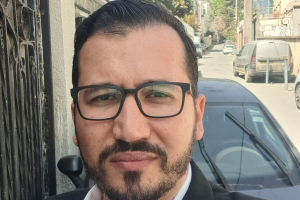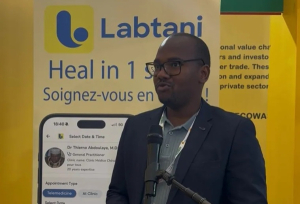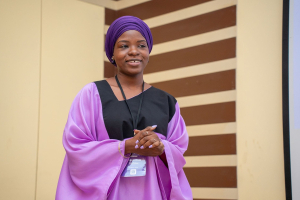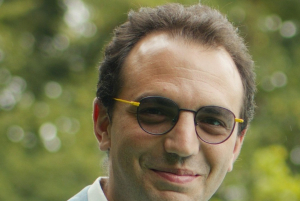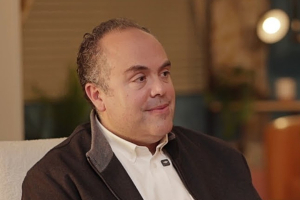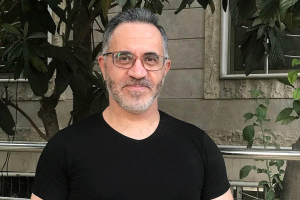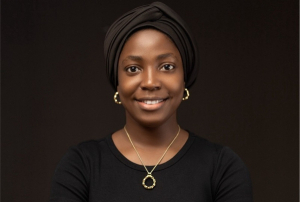Healthtech DZDOC Connects Algerian Patients and Doctors Online
- Algerian healthtech DZDOC digitises medical appointments, consultations, and patient–doctor interactions.
- Founder Rachid Maou launched the Annaba-based platform in 2015.
- DZDOC offers online booking, secure teleconsultation, and digital practice management tools.
DZDOC operates as a multi-service e-health platform developed by an Algerian startup. The company simplifies access to healthcare by digitising appointment booking, medical consultations, and interactions between patients and healthcare professionals. Founder Rachid Maou launched the platform in Annaba in 2015.
The platform allows patients to search for and book medical appointments online with practitioners across a wide range of specialties, including general medicine, surgery, psychiatry, and nutrition. Users can conduct searches by specialty and geographic location, which facilitates connections with nearby and available professionals.
DZDOC also integrates a secure teleconsultation system that enables users to consult doctors remotely through video calls. The service covers both physical and mental health and provides access to a broad network of practitioners without requiring physical travel. This feature offers clear advantages for remote populations and users with limited mobility.
For healthcare professionals, the platform provides a digital practice management interface with tools such as schedule planning, automated SMS and email reminders, and enhanced online visibility to patients. The solution aims to optimise appointment flow and improve practitioners’ operational efficiency.
DZDOC illustrates how digital health technologies can address healthcare accessibility challenges by connecting medical supply and demand in a market that remains largely dependent on in-person interactions.
This article was initially published in French by Adoni Conrad Quenum
Adapted in English by Ange J.A de BERRY QUENUM
Ayooka Uses AI to Optimise Blood Supply Management in Guinea
- Ayooka launched a national digital blood transfusion management platform in Guinea in 2022.
- The system uses artificial intelligence to manage blood stocks, reduce waste and anticipate shortages.
- The platform operates with support from the National Blood Transfusion Centre (CNTS) and health professionals.
Ayooka operates as an integrated digital solution dedicated to the management and optimisation of blood transfusion services in Guinea. The platform functions as a digital information and management system designed to improve the efficiency and security of processes related to blood collection, processing, distribution and traceability. The platform launched operations in 2022.
“Ayooka is the digital information and management system for Guinea’s blood transfusion services,” the platform said. “This integrated technological platform enables efficient and secure management of all processes related to the collection, processing, distribution and traceability of blood and its components.” The platform added: “Our objective is to optimise blood product stock management, guarantee the quality and safety of transfusions, and facilitate communication between all stakeholders in the transfusion sector, including donors, healthcare facilities and laboratories.”
The solution relies on several functional modules to address sector-specific challenges. Ayooka deploys artificial intelligence-assisted stock management to anticipate shortages, reduce waste and plan blood collection operations. The platform also integrates a hemovigilance module to monitor, assess and prevent incidents linked to blood products. In addition, the system allows physicians to track requests and prescriptions for labile blood products, while ensuring full documentation of administration to patients.
The platform also integrates public awareness features through digital and multimedia campaigns designed to encourage blood donations, including among non-schooled populations. A quality assurance component covers the entire transfusion chain, from donation to clinical administration.
With support from the National Blood Transfusion Centre (CNTS) and healthcare professionals, Ayooka aims to increase donation frequency and contribute to saving lives by improving the availability and safety of blood products.
This article was initially published in French by Adoni Conrad Quenum
Adapted in English by Ange J.A. de BERRY QUENUM
Algerian Entrepreneur Abdessabour Benzegane Connects Patients With Doctors Online
-
Abdessabour Benzegane founded Sihhatech in 2016 to connect patients with doctors and dentists online at no cost to users.
-
The platform allows 24/7 appointment booking across multiple medical specialties.
-
Benzegane also leads the Algerian Foundation for Innovation & Development, which supports digital transformation in healthcare.
Abdessabour Benzegane is an Algerian entrepreneur and automation and software engineer. He founded and currently leads Sihhatech, an online platform that connects patients with healthcare professionals. The service allows users to quickly find a doctor or dentist and book appointments at any time without cost to patients.
Benzegane launched Sihhatech in 2016 to simplify access to healthcare services. The platform enables users to contact medical professionals remotely and book appointments without travel or intermediary fees. The company positions the service as fully free for patients.
Sihhatech covers a wide range of medical specialties to address diverse healthcare needs. The platform lists pediatricians, gynecologists-obstetricians, cardiologists, dermatologists, and general practitioners among its available disciplines.
The platform relies on a simple and intuitive user process. Patients search for a doctor or dentist based on their needs and book appointments directly online in a few steps. The service operates 24 hours a day, seven days a week, including outside standard consultation hours.
Sihhatech also increases the visibility of medical practices by promoting their services to a broader audience. Some practitioners report higher activity levels after joining the platform, including more calls and improved patient recognition of their offices. Patients reduce search time and avoid unnecessary travel while securing faster access to available and qualified healthcare professionals.
Alongside Sihhatech, Benzegane has served since 2016 as chief executive officer of the Algerian Foundation for Innovation & Development. He founded the organization to support healthcare stakeholders in their digital transformation efforts.
Benzegane holds a state engineering degree in industrial process control, which he earned in 2012 from M’Hamed Bougerra University in Boumerdès. He later obtained a master’s degree in automatic control from the same university in 2014.
This article was initially published in French by Melchior Koba
Adapted in English by Ange J. A. de BERRY QUENUM
Labtani Brings Digital Healthcare Services to Guinea
-
Guinean startup Labtani provides online appointments, teleconsultations, and lab test bookings.
-
Founder Mohamed Diallo launched the e-health platform in 2025 to reduce access barriers to care.
-
The solution targets both patients and healthcare professionals through a digital marketplace model.
Labtani operates as an e-health solution developed by a Guinean startup. The platform allows patients to book online appointments with qualified doctors, access remote consultations, and reserve laboratory tests without long waits or physical travel. Entrepreneur Mohamed Diallo founded the startup in 2025.
The solution operates through a mobile application available on iOS and Android. The app has recorded more than one hundred downloads, according to Play Store data. Labtani targets populations facing unequal access to medical services. The platform simplifies appointments with specialists across multiple disciplines and offers secure video teleconsultation services, which significantly reduce barriers to healthcare access.
“Labtani helps healthcare professionals save time and see more patients without adding mental workload. Our platform simplifies appointment booking and introduces an automation engine that recovers lost slots from cancellations and no-shows by contacting patients and filling availability based on simple rules,” the startup said.
Beyond patient experience, the platform also targets healthcare professionals. Labtani allows practitioners to manage schedules, optimize consultation planning, and attract new patients through a digital visibility system.
This dual approach serves both patients and practitioners. The model positions Labtani as a digital marketplace for healthcare services.
Another key feature allows the platform to integrate laboratory test results and medical records directly into the system. By enabling access to quality healthcare through a smartphone or web browser, the solution helps reduce health inequalities while modernizing a sector that remains largely analog.
This article was initially published in French by Adoni Conrad Quenum
Adapted in English by Ange Jason Quenum
Beninese Doctor Viviane Oké Builds Digital Platform for Women’s Health Management
-
ELLES, created in 2022, offers cycle tracking, contraception information and cancer-prevention alerts.
-
The app distributes continuous health content and guides women in daily reproductive-health management.
-
Founder Viviane Oké, a Beninese medical doctor, combines medicine and digital-health strategy to support women’s autonomy.
Viviane Oké introduces a digital solution that strengthens the health autonomy of its users. She deploys a tool that reshapes how women receive support in their daily health management.
Oké, known as Dr. V, is a Beninese medical doctor active in the digital-health sector. She serves as chief executive of ELLES, an application she founded with a group of young Beninese doctors to improve reproductive-health monitoring for women.
ELLES, created in 2022, focuses on reproductive health. The application enables girls and women to track their menstrual cycles and access information on contraceptive methods. It distinguishes natural methods and details their benefits and potential side effects.
The platform also supports breast-cancer prevention by sending alerts at the optimal moment for self-examination and by providing a detailed guide. An integrated news feed delivers a continuous flow of content on the body, sexual health and reproductive health.
Oké graduated from the Faculty of Health Sciences in Cotonou, where she earned her medical doctorate. She also completed a master’s degree in international project management in October 2025 at Senghor University in Alexandria, Egypt.
She worked as a medical translator in 2021 for Smile Train, an international children’s organization. She served in 2022 as a fintech-technology consultant for the GIZ office in Benin. In February 2025, she worked as a physician at Clinique Patte d’Oie in Cotonou.
This article was initially published in French by Melchior Koba
Adapted in English by Ange Jason Quenum
Benin Entrepreneur Maessarath Rafiou Expands Digital Health Education with Mobidoto
- Mobidoto, created in January 2025, delivers offline-friendly digital training for community health workers.
- The platform offers structured modules, continuous training pathways and formal certification.
- The startup launched DotoIA in November 2025, a free WhatsApp-based revision assistant for health students.
Maessarath Rafiou, a Beninese medical doctor, founded and leads Mobidoto, a social-impact company that focuses on digital training for African health workers. She created Mobidoto in January 2025 and designed the platform as a continuous-learning tool usable in professional settings, including areas with weak connectivity. The application offers training pathways, structured modules and a certification system that validates acquired skills.
The Mobidoto website includes a “Resources” section that hosts educational materials, including e-books accessible through a dedicated page. These materials complement the app’s training modules and give health professionals practical tools for daily work. The platform mainly targets community health workers, aspiring community health workers, community relays, nurses, midwives and doctors.
The startup launched DotoIA in November 2025, a free revision assistant for health students available via WhatsApp. The chatbot delivers simplified explanations, short quizzes and full mobile access that works even under limited connectivity. The tool aims to support students as they prepare for exams.
Rafiou practices medicine at Dr Pierre Boni Clinic in Benin. She also founded and presides over OASIS Benin, an organisation created in 2017 that supports preventive care across Benin and the sub-region through awareness campaigns, information sessions and health-promotion initiatives.
She graduated from the Faculty of Health Sciences in Cotonou, where she earned a medical doctorate. Between 2016 and 2017, she served as project manager for Benin Health Movement, an organisation engaged in health-promotion activities in Benin.
This article was initially published in French by Melchior Koba
Adapted in English by Ange Jason Quenum
With Tanit AI, Kaïs Zhioua Helps Couples Navigate Infertility Treatments
-
Tanit AI, founded in 2024, provides an AI-driven digital platform that supports individuals and couples through fertility treatments.
-
The platform uses a specialized AI assistant to decode medical information, track treatment steps and facilitate communication with healthcare providers.
-
Founder Kaïs Zhioua also serves as strategy director at Fertillia and at Clinique La Rose, bringing sector expertise to the startup.
Kaïs Zhioua, a Tunisian entrepreneur and founder of Tanit Healthcare Technologies (Tanit AI), created a digital tool that follows fertility-treatment steps and aims to make the path to parenthood simpler and more predictable. He positions Tanit AI as a “personal companion toward parenthood” powered by artificial intelligence.
Zhioua founded Tanit AI in 2024 as a fertility-focused digital platform that supports individuals and couples from the exploration of options through treatment and potential complications. The platform integrates a fertility-specialized AI assistant that decodes medical information, tracks care pathways and clarifies proposed treatments.
The assistant explains fertility concepts, outlines possible causes of infertility and presents available diagnostic or treatment options. It facilitates conversations with healthcare professionals and supports informed decision-making. The platform guides users throughout treatment by helping them determine when to begin, follow protocols and manage unexpected events.
Tanit AI also provides markers to help users understand where they stand in their journey, consolidate medical information and anticipate next steps.
Zhioua simultaneously serves as strategy director at Fertillia, a Tunisian company specialized in assisted reproduction, and as director of strategy and innovation at Clinique La Rose in Tunis. He previously founded Careways in 2016, a digital tool dedicated to medical tourism.
He graduated from the Mediterranean School of Business with a bachelor’s degree in business administration in 2013 and earned a master’s degree in entrepreneurship from Zhejiang University in China in 2015.
This article was initially published in French by Melchior Koba
Adapted in English by Ange Jason Quenum
Mohammed El-Beltagy Turns AI Into Efficiency Lever for Businesses
Moroccan entrepreneur Mohammed El-Beltagy has built his career around applying artificial intelligence to business performance. He founded and leads Optomatica, a deep-tech consulting firm specializing in AI, machine learning and advanced optimization.
Optomatica focuses on accelerating the transition from ideas to final products by developing tailored AI systems that improve decision-making and data management. The company positions itself as “AI-First” and adapts its technologies to operational contexts across industries.
Founded in 2003, Optomatica operates in fintech, sports technologies, digital health, conversational intelligence, logistics, and process optimization. The firm aims to create practical AI applications and unlock new technical opportunities for clients and their markets.
Alongside Optomatica, El-Beltagy has pursued multiple ventures. In 2014, he co-founded Racefox, a digital coach for running and cross-country skiing. Four years later, he launched ConsultingPad, a platform linking consultants with enterprises, and joined AIM Technologies, an AI-focused firm, as a board member.
In 2021, he helped establish Optofolio, a wealth management platform; Jilatee, a circular fashion company; and DFin Holding, a fintech venture.
Since 2022, El-Beltagy has served as co-founder and chief technology officer of Flend, a financing platform that uses data and technology to support small and medium-sized enterprises. That same year, he founded Racemate, a sports technology company, where he chairs the board and serves as CTO.
El-Beltagy graduated in biomedical engineering from the American University in Cairo in 1994. He earned a master’s degree in mechatronics from Lancaster University in 1996 and a PhD in mechanical engineering from the University of Southampton in 2000.
His professional record includes senior positions in technology firms. From 2007 to 2017, he worked at Hive Streaming, a live video distribution company, as chief scientist and later as innovation director. Between 2013 and 2017, he served as innovation director at Novelari, an innovation accelerator. More recently, from 2020 to 2021, he was CTO at Elves, an Egypt-based travel app.
This article was initially published in French by Melchior Koba
Adapted in English by Ange Jason Quenum
Blademy, FasterCapital Partner to Boost Digital Health in West Africa
-
Blademy partnered with FasterCapital under its EquityPilot program to scale Bluetooth-enabled health devices for chronic disease management in West Africa.
-
The partnership will provide capital, mentorship, commercialization support, and fundraising assistance to accelerate deployment.
-
Pilots will launch in Ghana and Senegal within 6–18 months before scaling to Côte d’Ivoire, Nigeria, and Burkina Faso.
The World Health Organization warned that Africa could face a shortage of 6.1 million health workers by 2030 if urgent action is not taken. Digital health is emerging as a key lever to close the gap and expand care access across the region.
Blademy, an initiative of Côte d’Ivoire’s Agence Digitale N’zassa (ADN), signed a strategic partnership with global incubator FasterCapital through its EquityPilot program. The agreement seeks to strengthen digital health in West Africa with locally adapted and affordable solutions.
“Blademy illustrates the kind of pragmatic, high-impact innovation we seek: simple hardware, smart software, and a business model tailored to underserved markets. Our EquityPilot program will provide the capital, network, and technical guidance required to transform demonstrable pilots into scalable impact on health systems,” said FasterCapital founder and CEO Hesham Zreik.
The collaboration will give Blademy growth capital, international mentorship, commercialization support, and fundraising assistance. These resources aim to accelerate the rollout of its offline, Bluetooth-enabled health platform designed to manage diabetes, hypertension, and gout.
Blademy’s solution combines low-cost Bluetooth glucometers, blood pressure monitors, and uric acid testers with an Android/iOS application that functions offline. Data is stored locally and later shared with clinicians, enabling patient monitoring in rural and peri-urban areas while reducing chronic care costs.
The initiative comes as digital health grows rapidly in West Africa but remains hindered by weak connectivity and reliance on imported equipment. Millions in the region suffer from chronic diseases, while shortages of health professionals add pressure to fragile systems. Blademy’s model addresses these local realities by focusing on affordability and offline functionality.
With FasterCapital’s support, Blademy will implement a 6–18 month roadmap starting with pilot projects in Ghana and Senegal. Expansion is planned for Côte d’Ivoire, Nigeria, and Burkina Faso. Long term, the company aims to become a leading digital health player in West Africa, strengthening prevention and reducing the economic burden of chronic illnesses.
This article was initially published in French by Samira Njoya
Adapted in English by Ange Jason Quenum
Nigerian Entrepreneur Nana Aisha Onisarotu Builds Digital Platform to Streamline Emergency Care
West Africa faces persistent challenges in managing medical emergencies, with delayed ambulance responses often linked to preventable deaths. Nigerian physician and entrepreneur Nana Aisha Onisarotu is developing digital solutions to improve efficiency and coordination across the sector.
She founded ResQCore in 2023 as a platform dedicated to emergency healthcare management. The system connects ambulance operators, hospitals, insurers, and individuals through a digital infrastructure that integrates vehicle tracking, hospital capacity monitoring, and centralized service requests.
ResQCore deploys automation to manage ambulance allocation and leverages artificial intelligence to reduce intervention delays. The approach enhances coordination between stakeholders and improves the traceability of emergency responses.
Before ResQCore, Onisarotu co-founded The Ambulance Company in Nigeria in 2020. The firm manages both urgent and non-urgent transport for patients, schools, companies, and events in Lagos and surrounding areas. Its fleet includes ambulances equipped with monitoring devices, advanced medical equipment, and communication systems.
Onisarotu earned her medical degree in 2017 from Danylo Halytsky National Medical University in Lviv, Ukraine. She completed a master’s in global health at Vrije Universiteit Amsterdam in 2019 and is currently pursuing healthcare management studies at Pan-Atlantic University in Lagos.
Her professional experience includes serving as a program director at Nigeria’s Ministry of Health in 2021 and working as a physician at Queen Elizabeth Hospital King’s Lynn in the United Kingdom in 2023.
This article was initially published in French by Melchior Koba
Adapted in English by Ange Jason Quenum




